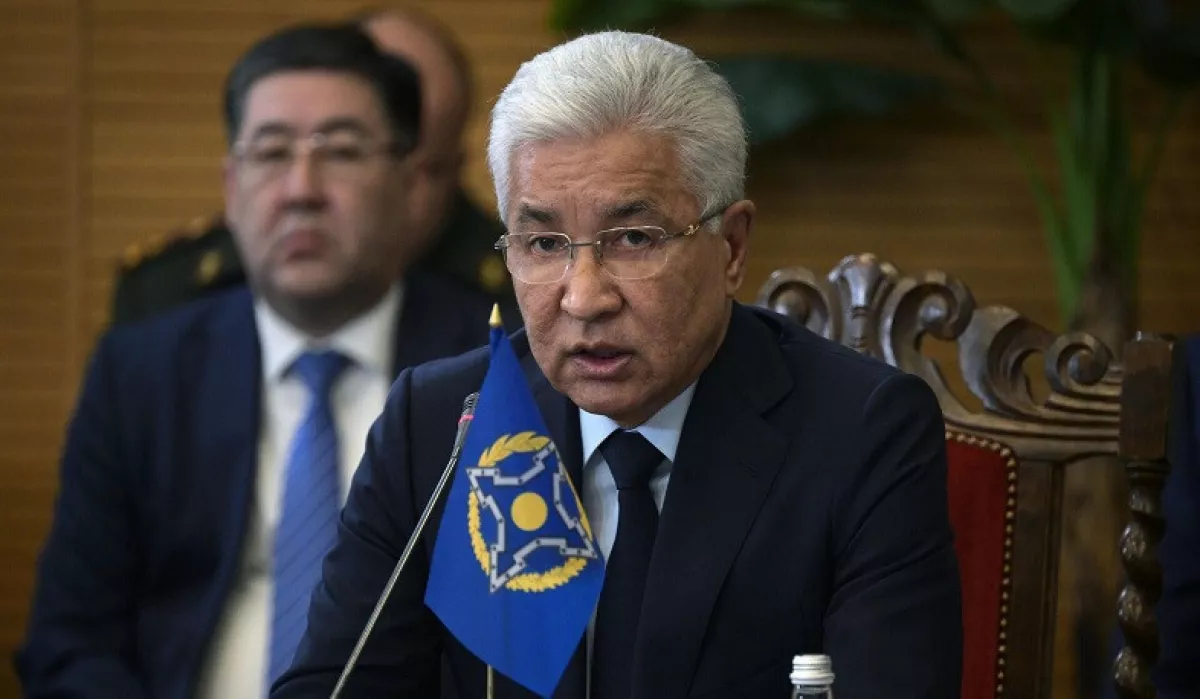CSTO does not let Armenia go: Moscow demands clarity Yerevan at a crossroads
Armenia is once again confronted with reminders of its obligations to the Collective Security Treaty Organization (CSTO). Despite freezing its participation in the organization in February 2024, Armenia remains a formal member, which imposes certain obligations on Yerevan. Guided by this position, the CSTO periodically signals to the Armenian leadership that membership in the organization requires adherence to its Charter.
Following Armenia’s refusal to support the decision of November 23, 2023, regarding the CSTO budget for 2024, a harsh reaction from Moscow followed. Russian Deputy Foreign Minister Alexandr Pankin, speaking at the 17th Verona Eurasian Economic Forum, criticized Yerevan for its financial debt to the organization, stating that while Armenia could delay its payments for two years, there is already a debt for 2024, and the deadline for repayment is at the end of 2025, after which appropriate measures will be taken.
A negative reaction was also expressed by Russian Foreign Ministry spokesperson Maria Zakharova, who emphasized that failure to pay contributions could result in Armenia losing its voting rights within the organization. She reminded that Russia covers half of the CSTO budget, while the other members contribute 10% each, and urged Armenia to take financial responsibility.
Despite the loud statements from the Armenian leadership about the possibility of leaving the CSTO, no concrete steps have been taken so far. Moscow, however, demands clarity from Armenia regarding its foreign policy direction, including with respect to the CSTO.
Against this backdrop, CSTO Secretary-General Imangali Tasmagambetov confirmed in an interview with Izvestiya that the organization continues to maintain working contacts with Yerevan and upholds its obligations to Armenia. He emphasized that the republic remains an ally and that the format of relations between Armenia and the CSTO has not changed.
These statements suggest that the CSTO is interested in fully restoring its partnership with Armenia and is giving Yerevan another opportunity to reconsider its position. Indirectly, this is indicated by the following facts.

Firstly, in an interview with a Russian publication, Imangali Tasmagambetov revealed that the next session of the CSTO Collective Security Council, proposed by Kyrgyz President Sadyr Japarov, will take place at the end of 2025. This message from the Secretary-General can be interpreted as an invitation for Armenia to participate in the upcoming event of the organization. In this way, the CSTO continues its "soft pressure" approach, typical of Moscow's stance towards Yerevan.
Secondly, it is notable that the subtle invitation for Armenia to resume cooperation with the CSTO was voiced by Tasmagambetov shortly after Yerevan suspended discussions on a bill regarding the country's accession to the European Union. This decision was a surprise for Moscow, which likely sparked some hope that Armenia might reconsider its foreign policy strategy. As a result, Russia is likely to monitor the actions of the Armenian leadership in this regard even more closely.
Thirdly, it is becoming increasingly clear that Moscow is demanding a clear definition of Armenia’s long-term foreign policy direction. While Yerevan previously managed to balance between Russia and the West, relying on Moscow’s patience, statements from Russian officials suggest that this tactic is now being reconsidered.
In recent months, Moscow has increasingly emphasized that Armenia’s economic stability depends more on Russia than on the West, and this acknowledgment is becoming less disputed, even in Yerevan itself. In this context, the signals coming from the CSTO serve as a warning for Armenia: despite attempts to distance itself from the organization, Moscow appears determined to take all necessary steps to keep Armenia within its sphere of influence.








